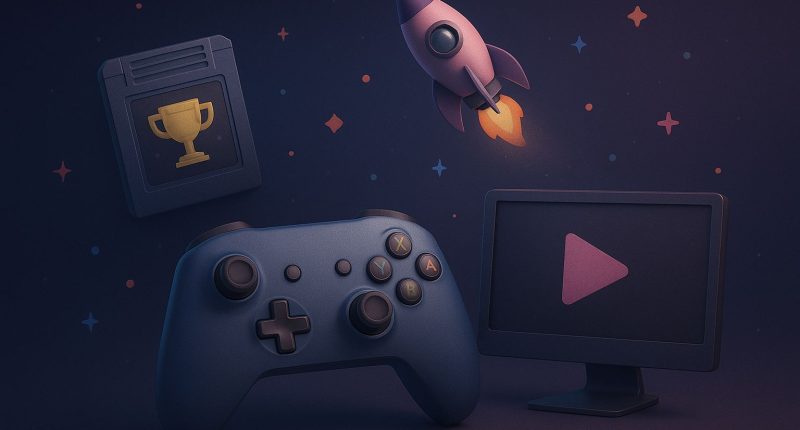Early-stage game fund – Blue Ocean Games (backed by South Korean gaming giant Krafton) – has now unveiled a $30 million (~ ₹257 crore) fund to invest in the next generation of indie game developers. Particularly, this latest move will provide financial support, mentorship, and resources to early-stage game developers and startups. The firm aims to invest in about 100 indie developers over the next three years.
Interestingly, the fund introduces a new investment model called SAIL (Structured Agreement for Indie Launch), which provides developers with financial support at the concept stage. Under this model, individual developers can receive up to $100,000 in funding, while teams/startups may secure up to $300,000 over a two-year period.
According to the firm, the SAIL framework incorporates a hybrid equity and revenue-sharing agreement designed to balance developer autonomy with investor returns. While the initial focus is on individual developers and small teams working on their first or second projects, there are plans to extend support to larger, more experienced teams through future funds.
It is important to note that this initiative aligns with Krafton’s strategic vision to promote local talent and encourage innovation within India’s rapidly growing gaming sector. Earlier in 2023, the South Korean gaming company (known for its popular titles like PUBG and Battlegrounds Mobile India) announced plans to invest $150 million in India over the next two to three years.
Since its first investment in 2021, Krafton has invested over $170 million into several Indian startups, including Nodwin Gaming, JetSynthesys, Kuku FM and more. In fact, recently, Krafton acquired a majority stake in Indian mobile gaming startup Nautilus Mobile.
This initiative comes at a time when indie developers face multiple challenges, including securing funding, gaining visibility in a saturated market, and navigating the increasingly complex technical and production demands of game development. Even a recent survey by the Game Developers Conference (GDC) showed that about 56% of indie developers rely on personal savings or part-time jobs to fund their projects, highlighting the unstable nature of independent game development.
However, despite these challenges, the sector remains noteworthy, as global indie game revenue is projected to surpass $2 billion by 2026. At the same time, the Indian gaming industry (driven by aggressive mobile penetration and internet adoption, particularly among Gen Z) is expected to grow at a CAGR of over 20%, with total revenues projected to reach $1.9 billion by 2025.
Speaking of Blue Ocean Games’ latest move, the strategy also includes the ‘Rising Tide’ initiative, a series of online competitions and challenges designed to help developers validate ideas, gain recognition, and advance their projects. The first challenge is set to launch on May 1, and the top 20 entries will have their applications fast-tracked for potential investment consideration under the SAIL model.
The Tech Portal is published by Blue Box Media Private Limited. Our investors have no influence over our reporting. Read our full Ownership and Funding Disclosure →






